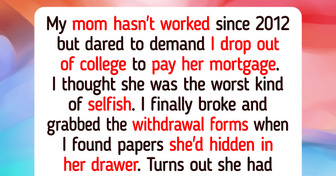You need to consider whether or ya visit to HR about a hostile work environment is needed.
I Refuse to Go to Work on My Days Off, Even If It’s an Emergency
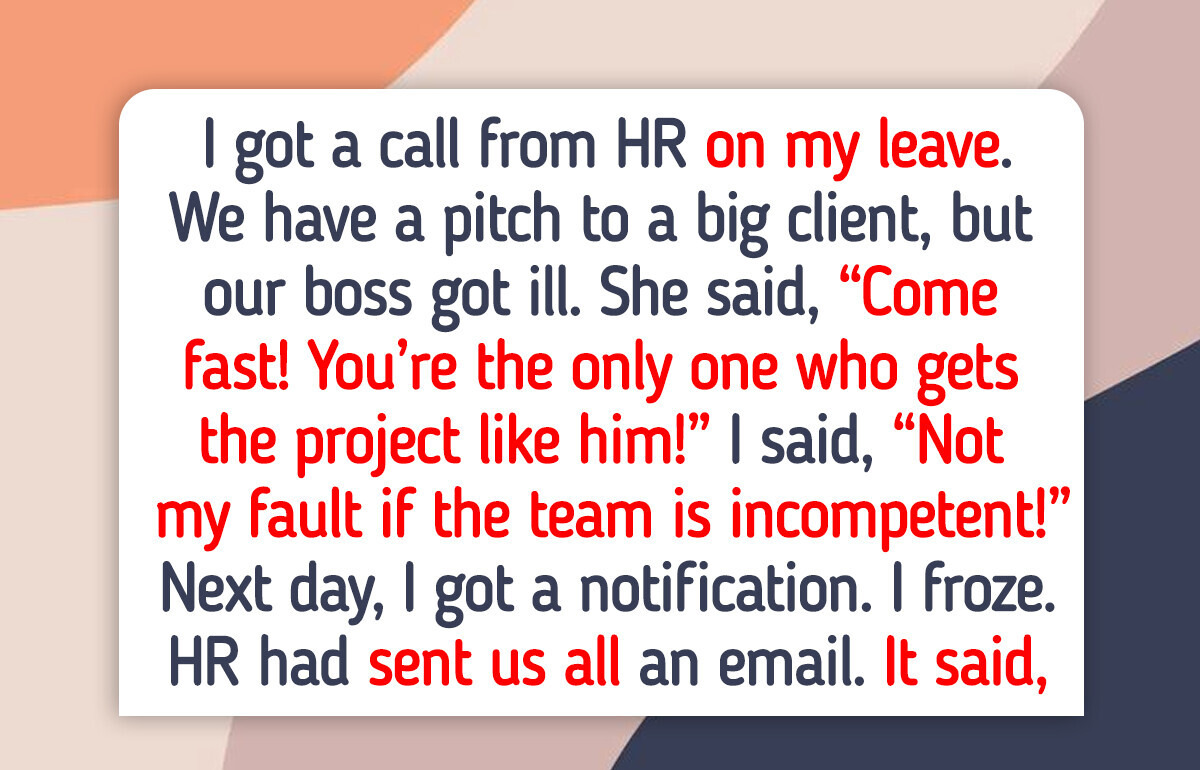
In today’s fast-paced work culture, many people feel pressured to stay available even on their days off. The line between personal time and work keeps getting blurred, leading to stress, guilt, and burnout. Stories about work-life balance, toxic workplaces, and employee rights are everywhere. Recently, a reader wrote to Bright Side to share what happened after she refused to go to work during her leave.
Dear Bright Side,
I got a call from HR on the 2nd day of my leave.
We had a major client presentation scheduled that afternoon, but our boss had suddenly gotten very ill and was rushed to the hospital. Canceling the presentation could mean losing the client altogether.
In a panicked voice, HR said, “Come urgently! Please! You’re the only one who understands the project like him!”
I was shocked. I replied, “It’s not my fault if a team of 14 are incompetent. I’m not breaking my leave!”
The next day, I got a notification. HR had sent an email to all of us. It said:
Dear team,
From now on, every team member will have a one-on-one monthly assessment. Your future in the company will depend on your evaluation scores. This could include immediate termination.
Best regards,
Human Resources

I didn’t think much of it at first. But the next week, when I got back to the office after my leave ended, I entered and froze. I found more than half the office empty, and everyone who was still there looked at me with resentment.
They whispered that I was the reason so many had been fired after failing the first monthly review.
Yes, I admit — part of me felt relieved that some incompetent employees were finally gone. But now the workload on the rest of us has doubled. We’re expected to fill in until new hires are trained, which could take months.
Now I’m being treated like the villain — the “snitch” who caused the layoffs.
But was I wrong for pointing out that our team was weak?
Yours,
Paula
Thank you, Paula, for sharing your powerful story about workplace pressure, HR decisions, and standing your ground during personal time off. Your experience shows how quickly office dynamics can shift after one tough choice.
We’ve put together some practical advice to help you navigate this situation and turn it into a lesson in resilience and professional growth.
Rebuild your narrative before others define it.

You do it once ..... It becomes expected. This happened to me many years ago until one day I just said Stuff it and walked out after they denied me emergency leave.
Your coworkers see you as the villain who caused the layoffs — but they don’t know the full story. Instead of staying silent or defensive, take control of the narrative.
Send a short, calm message or speak briefly in a team meeting to clarify that HR’s decision was theirs, not yours. End with a focus on rebuilding teamwork. You’re not apologizing, you’re resetting the story before gossip becomes your identity.
Quietly document HR’s panic and its consequences.
That emergency call during your leave and the sudden new “monthly assessments” show that HR acted in panic, not policy.
Start quietly documenting dates, messages, and how the situation unfolded. You’re not gathering evidence to fight — you’re protecting yourself. In unstable workplaces, a clear paper trail is your best defense if the chaos continues.
Turn the “Snitch” label into strategic leverage.

IF you choose to answer your phone for a WORK CALL, WHILE ON LEAVE you are in essence saying that YES I AM Working. There are dozens of ways to AVOID THOSE CALLS. It is a shame that your boss was ill, but it ultimately is not a reason for NO ONE ELSE BEING AWARE OF or PREPARED FOR THE CLIENTS NEEDS. If you answered the phone, knowing that it was work calling, you should have known why. Especially since, by your own words, many of your coworkers are incompetent. Blaming you for the loss of other's jobs, does bear you out on THAT POINT. KNOWING that, you can't be surprised that they CALLED YOU. If you DON'T ANSWER THE CALLS ON VACATION, you would not have to deal with it.
If people now see you as the person management trusts, use that perception to your advantage. Volunteer to help stabilize the workflow or train new hires. Frame it as making sure the team never ends up short-staffed again.
Over time, coworkers stop seeing a “snitch” and start seeing a capable problem-solver who holds the team together when things fall apart.
Prepare a smart exit strategy.

Well, she wasn't wrong to point out her current leave status, however, she was unprofessional in expressing her view point. She could have taken a 10-minute thought process to consider the request, explain to HR by stating you will add the number of days you would work on this "emergency" to your ongoing leave break. Honestly, she is also a part of the problem, how you ask? She knew about the incompetent state of the hires but never said anything about it? Staff members are sent for trainings on a regular basis but if this company has incompetent staff members then she's also incompetent. Look, the request wasn't a big deal, honestly! it wasn't! She should have handled the situation better. So who's doing more work for snitching now? she and the remaining "few" co-workers! that's who.
This whole episode exposed a deeper issue: leadership that reacts emotionally and a culture quick to blame.
Stay professional, but quietly start preparing your exit. Update your portfolio, document your achievements, and keep your network warm. When you eventually move on, you’ll do it with proof that you stayed calm and competent in a storm — something any good company will value.
Despite all the challenges and unexpected turns life may bring, we must never forget that kindness still exists in this world, and it remains one of the most powerful forces of the human spirit.
Comments
You should have gone!! This was an urgent matter... Your company and your paycheck relied on it!! Shame on you ma'am
There is nothing she can do that is going to make that team see her as a "problem solver who holds the team together". Her coworkers now see her as the one who got half the team fired so everyone had to do double work for months. I can almost guarantee that her coworkers will warn the new hires to be careful around her for fear of her telling HR they are incompetent for not knowing everything the boss knows about a project. Saying no is one thing. Throwing your team under a bus is an entirely different matter. She should have just said no and she was on a trip out of state.
I don't believe this really happened. 1) If you have 14 staff members all who are all working on the same project, how can they not be able to "speak" to the project. 2) You don't mention what your role on the team is. If you're the team lead, who did you designate to handle your duties while you were gone? If it was your boss, I'm seriously wondering what the other members of staff do. 3) I'm glad you answered the phone. Were you out of the country or out of the state? If you weren't, and
If you were close by, I would have assisted. What you showed everyone was that you weren't a team player. The fact that the bulk of your team is seen, by this audience, as incompetent, is unreal. Also, the fact that half them were fired or gone when you came back from vacation is baffling - unless it was the company owner who was doing the tossing.
Learn this phrase for when work comes calling when you're off the clock 'well I'm halfway down a bottle of bourbon in **any town above 60 miles away** so I can't drive and I'm priffy prifdy pretty drunk. I'm booked into a hotel here you see and I'm with my **30 seconds chuckling and like you're talking to somebody else** they said to say friends then laugh again'. Then you're not a snitch, you're not causing drama, you're just out living your best life with your friends! Works like a charm lol
Related Reads
I Was Offered Double My Salary at a Rival Company, Now HR Stepped In

15 Stories That Prove Repairmen Are Full of Surprises
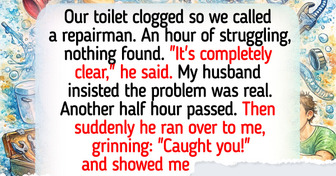
I Refuse to Answer Work Emails After 5 PM—Now My Boss Is Coming After Me
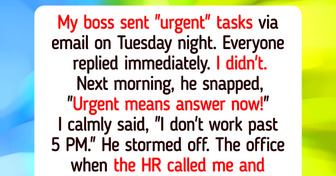
18 Moments That Remind Us Kindness Takes Minutes but Stays Forever
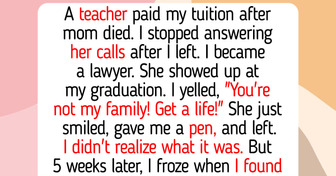
I Refuse to Be Treated as Less Reliable Because I’m a Single Mom
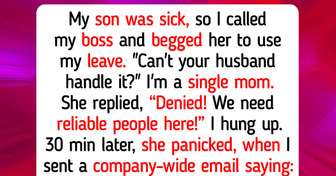
14 Stories From Cleaners That Are Wilder Than Any Movie Script
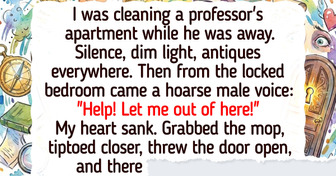
I Refused to Work While My Mom Was Dying—HR Got Involved
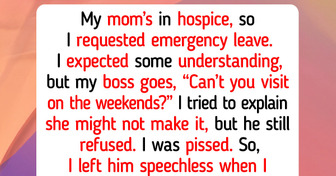
17 Moments That Prove Even Small Kindness Can Be Powerful
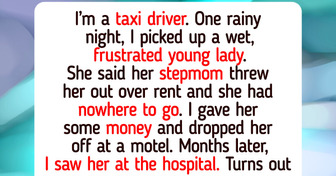
10 Jaw-Dropping Moments When People Stumbled Upon Secrets They Weren’t Meant to See
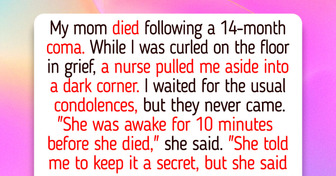
10 Moments That Show Kindness Doing the Heavy Lifting
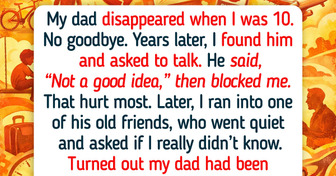
16 Moments That Teach Us to Stay Kind, Even When the World Turns Ugly
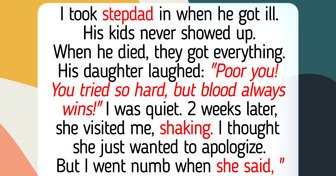
10+ Stories That Prove Quiet Kindness Is All Around Us, Even When No One Is Watching
